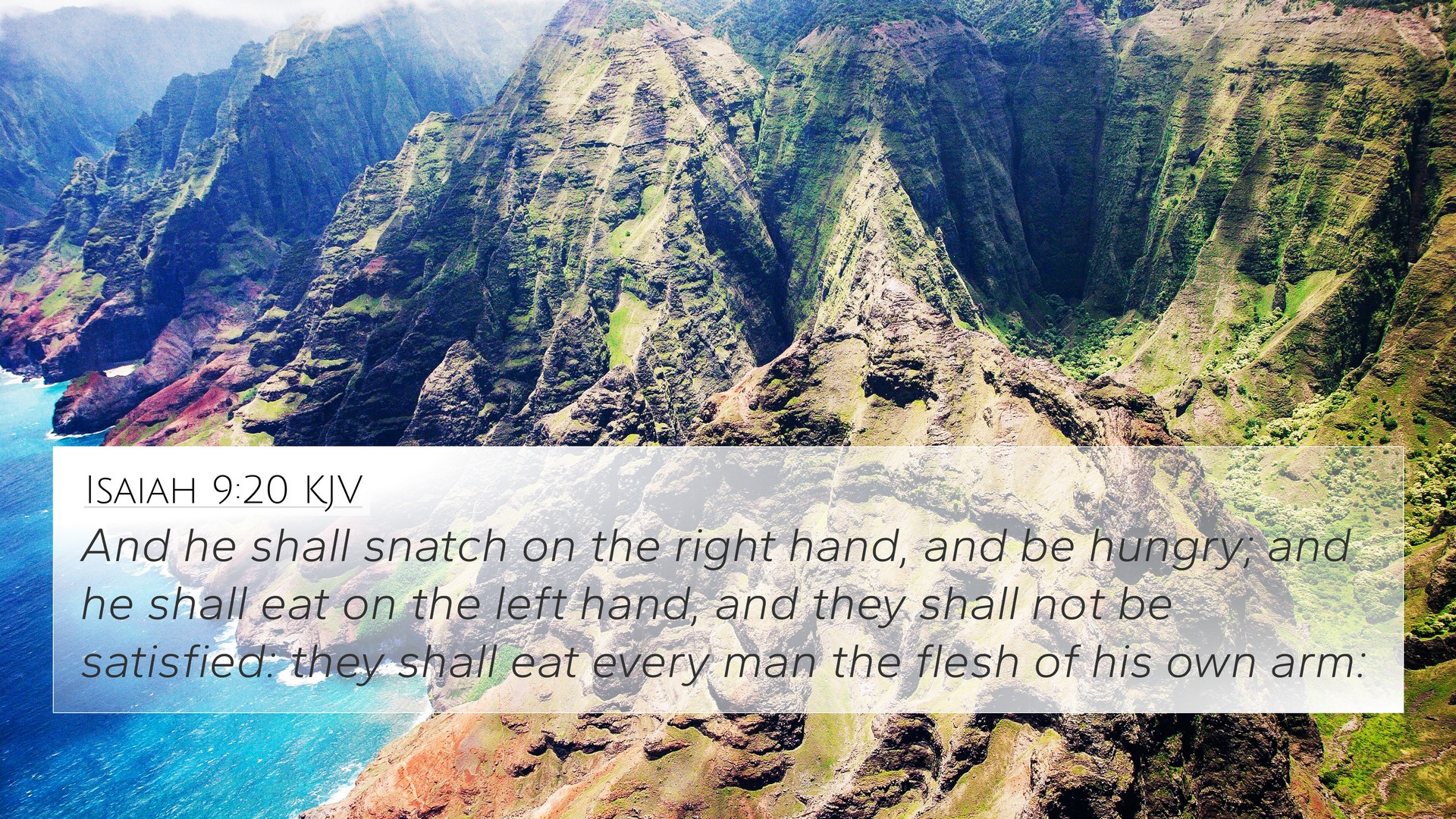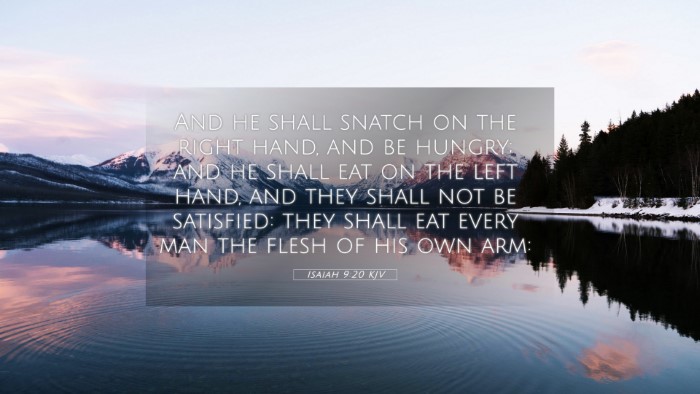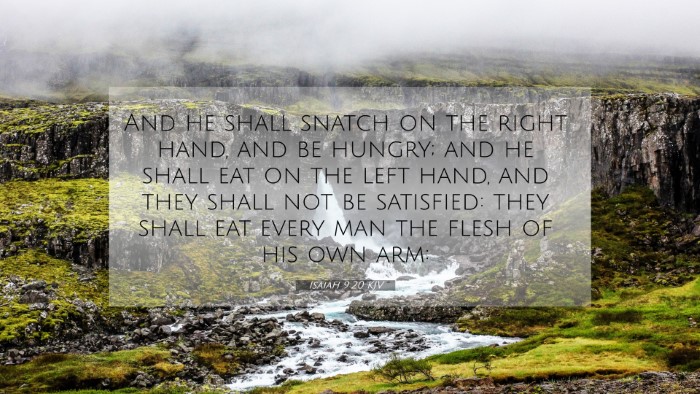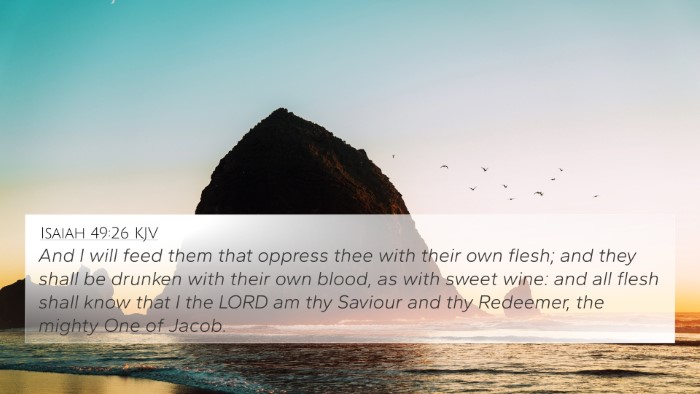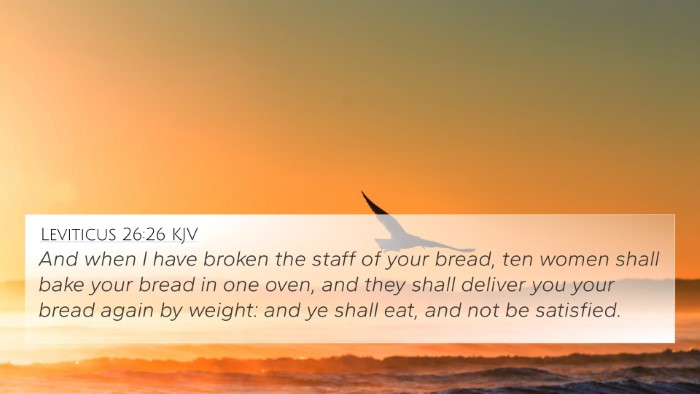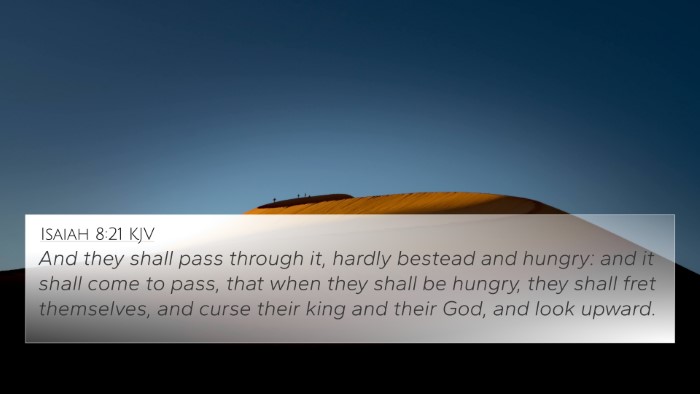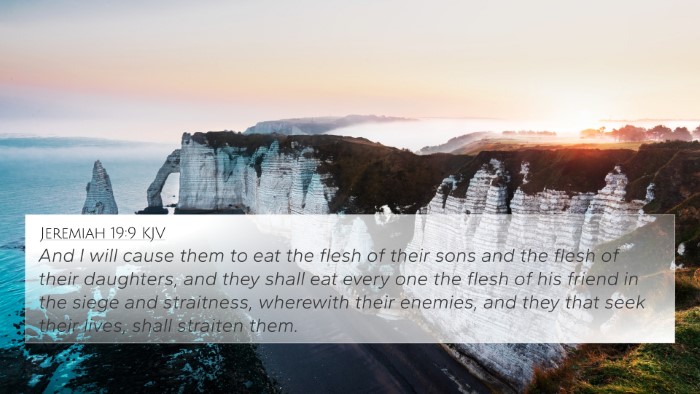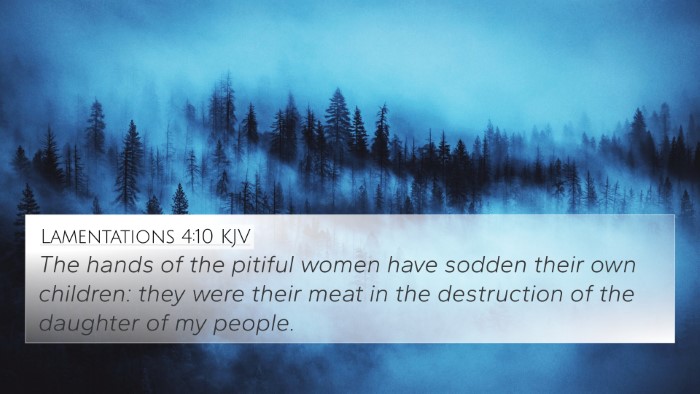Understanding Isaiah 9:20
Isaiah 9:20 offers profound insights into the tumultuous experiences faced by the people of Israel during the time of the prophet Isaiah. This verse, which states, "They shall snatch on the right hand, and be hungry; and they shall eat on the left hand, and they shall not be satisfied: they shall eat every man the flesh of his own arm," underscores the dire consequences of straying from God and the ensuing desperation of the people.
Verse Breakdown
In this scripture, the imagery of hunger and cannibalism is stark and serves as a metaphor for the extreme conditions resulting from God's judgment. As the public domain commentaries elaborate, Isaiah depicts a society in chaos, where unity breaks down, leading to self-destruction.
Commentary Insights
-
Matthew Henry notes that this verse reflects the severe spiritual and moral decay among the people. He emphasizes the physical hunger that symbolizes a deeper, spiritual hunger — a yearning for God that remains unfulfilled when individuals turn away from His commandments.
-
Albert Barnes interprets the desperate actions described in the verse as a direct result of the Lord's forsaking the people. He highlights that the lack of satisfaction despite consumption points to an inner void that only divine grace can fill.
-
Adam Clarke examines the implications of such actions leading to neighbors turning against each other, revealing the social breakdown resulting from national sin. He stresses that these behaviors should serve as a warning to maintain righteousness and seek God's guidance.
Bible Verse Cross-References
Isaiah 9:20 connects to several other biblical passages that elucidate similar themes of judgment, hunger, and social strife. Below are significant cross-references that reflect the themes encapsulated in Isaiah:
- Deuteronomy 28:53-57 - This passage describes the curse of famine leading to desperate behaviors during times of siege.
- Jeremiah 19:9 - Jeremiah speaks of cannibalism as a consequence of siege and divine judgment.
- Lamentations 4:10 - This verse describes the dire situations faced by mothers who have resorted to horrific actions due to starvation in Jerusalem.
- Ezekiel 5:10 - Here, the prophecy touches upon the extreme measures people will take when facing dire circumstances as a result of rebellion against God.
- Matthew 24:12 - Jesus warns that as iniquity abounds, the love of many will grow cold, leading to a breakdown of communal bonds.
- Luke 21:11 - Similar to Isaiah's warnings, this verse demonstrates predictions of societal calamities, including famine and distress among people.
- 2 Corinthians 11:27 - Paul speaks to physical hardships that can manifest in life, echoing the spiritual hunger and discontent faced by Isaiah's audience.
Thematic Bible Verse Connections
The overarching theme in Isaiah 9:20 and its related verses illustrates the consequences of collective sin and the isolation that ensues when a society turns away from God. These connections provide a broader understanding of how scriptural themes interweave through both the Old and New Testaments.
Insights for Cross-Referencing
Understanding Isaiah 9:20 can be enhanced by exploring cross-references. Here are some tools to consider for deeper Bible study:
- Bible Concordance - A useful tool to locate specific words and phrases in the Bible.
- Bible Cross-Reference Guide - Helps in identifying thematic links between scriptures.
- Bible Chain References - Provides a method of linking verses based on shared themes.
Conclusion
In conclusion, Isaiah 9:20 serves as a compelling reminder of the spiritual and social ramifications of rejecting God’s ways. By utilizing comparative Bible verse analysis and exploring thematic connections, one can gain a more robust understanding of the scriptures and their relevance to personal faith and community life. Through diligent cross-referencing, believers can uncover the rich tapestry of divine truths woven throughout the Bible, enhancing their spiritual journey.
